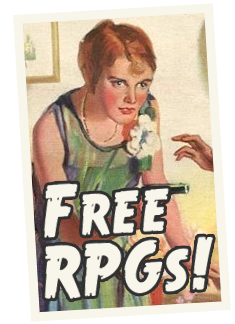World Creation 11: Dang Guv’mint
I’ve implied much and said little about the political structure of the Great Machine. I think this is a proper time in the development of this setting to set down exactly how it works.
Before I look at the actual politics, I first need to establish the bounds of the Great Machine. What does the political machine attempt to accomplish?
Most obviously, the allocation and distribution of resources. That’s been time and again established as the principle function of the Great Machine. However, the Great Machine also runs on knowledge—funding education seems like a pretty logical move. City improvements (art, cleanup, health inspection) would be delegated to local control—no reason to get the bureaucrats involved in that. Same with wages, unions, etc. It’s really almost as if the Great Machine is a sort of federal government and the cities are states; the feds take care of the areas of sweeping grand importance, while the states deal with the petty ground-level stuff that should vary from area to area.
I’ve already mentioned that I envision the Great Machine being run by a sort of Grand Council, a collection of semi-immortal suprageniuses who run the whole show. Each one has a base of operations in a major city, which they rule over as a sort of baron. Every so often, they convene in the capital to discuss matters of importance. Lesser cities are run by delegates.
Of course, these surpageniuses only concern themselves with the most pressing matters. There’s sub-councils for issues such as Technology, Gathering, Education and Socialization (the latter referring to the nationalization of young citizens, the inspiration of patriotism and love of the Great Machine).
In the agricultural areas (not attached to any city in particular) things are run by councils under the direct supervision of a special appointee in charge of overseeing harvests. This is intended to prevent corruption while allowing the Grand Council to focus on other areas.
Corruption, of course, does exist in the Great Machine. The most common crime is accepting bribes to waive goods transport fees, allowing merchants to make considerably more dramatic profits. However, there are many other offenses that make it past the radar: appropriating small sums of resource to be traded at a lower rate, looking the other way in cases of smuggling, rigging resource distribution to benefit clients and just plain embezzling. These bureaucrats usually escape justice until they start getting ostentatious, at which point investigative warders usually put a stop to them.
Public opinion of the Great Machine is, surprisingly, quite high. Very little propaganda is required to keep the public satisfied regarding the Great Machine’s operation. In fact, almost all protests are formed because the Great Machine has been lax in its self-appointed duties, delaying shipments overmuch. However, the average citizen is quite frankly poorly informed about the world situation and the workings of the Machine, to the point where scandals are more or less unheard of—if a politician has been committing fraud, they are dealt with quietly (not as sinister as it sounds—they’re usually just fired).
Unfortunately, that’s all I have time for tonight. Next week, we’ll take a look at specific major cities and their role in the sustenance of the Great Machine.







Huh. It would seem your big government, which in any normal game world would be endlessly evil and corrupt, is not at all worse than some modern governments. I hope that’s what you were going for.
Yeah. I realized that myself as I was writing this post–I kept true to my goals for the Great Machine, and it has its share of atrocities and totalitarianism under its belt, but ultimately it’s basically like any real-world government.
I’m actually pretty happy with this result. It feels real, but accomplished everything I was working towards.
The seizing and oversight of resources is a little iffy, of course.
It has its iffy aspects, but all in all it’s for the betterment of the citizens. It also gives more incentive for those who live outside the Great Machine’s influence to join up, which means more workers which means for resources which means a better life for everyone. All in all, I’d say that most of the evil and corruption stemmed from good intentions, as with most systems.
Kewl.
… um, what’s a “supragenius”?
“Supra” is a Latin prefix meaning “above”. It’s the opposite of “infra”, or “below”. It sounds a little more dignified than “supergenius” is all.
Ah, ok.
Yeah, Xyfets. How dare you not know the original Latin prefixes! Guards, take him away for reeducation! By which I mean torture with intent to brainwash, but not really brainwash, just torture.